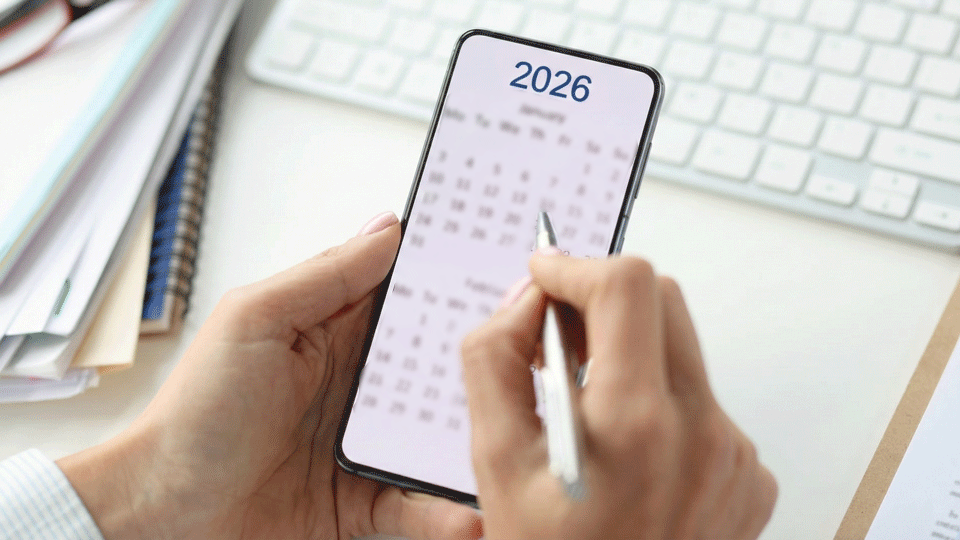During its life, every contract passes through different phases, which together form what is known as the contract life cycle. These phases range from creation, negotiation, approval and fulfillment to controlling and archiving of documents. A well-thought-out contract lifecycle management (CLM) system helps legal departments to efficiently manage the contract lifecycle and keep track of their agreements at all times.
What is contract lifecycle management?
The aim of contract lifecycle management is to standardize the individual phases through which a contract passes and thus to optimize the entire contract lifecycle. Coordinated processes make it easy to create and manage agreements, ultimately increasing transparency and minimizing risk. When implementing CLM, many companies now count on smart contract management software to help automate the individual work steps.
The phases of the contract lifecycle
In many industries and departments, the contract lifecycle is similar. In the following, we describe the six elementary phases that are optimally intertwined through the use of smart software such as Fabasoft Contracts.
1. Contract creation
The first phase is the creation of new or modification of existing agreements. These frequently recurring tasks harbor potential for errors and therefore require special care. Smart contract management contributes not only to a significant increase in efficiency but also to an improvement in quality through the use of artificial intelligence as well as templates. During contract generation, the stored metadata goes directly into the document templates, which means that they always correspond to the current legal situation.
In addition, CLM software uses artificial intelligence and OCR to optimize the extraction and classification of the information contained in existing contracts during digitization. This allows relevant data and agreements to be quickly retrieved and processed.
2. Contract negotiation
Once the contract has been generated, the second phase in contract lifecycle management begins – negotiation. This requires effectively organized, traceable collaboration in compliance with the strictest data protection and security regulations. A modern tool offers the possibility to create secure, password-protected data rooms in the cloud and thus store all documents for the negotiations in one place. These rooms facilitate the easy involvement of all internal departments, external contractors and legal advisors.
Automatic versioning makes any changes traceable and the most recent document always visible. The time travel function makes it possible to quickly find older versions and restore them if necessary.
3. Contract approval
After negotiations have been concluded, the software automatically starts the necessary review, approval and release processes and directs the workflows to the relevant decision-makers based on rules. This ensures fast, audit-proof processes not only during the negotiation phase, but also throughout the entire contract lifecycle, as well as maximum transparency with regard to version and status.
To sign the agreement, every modern contract management software has a native, legally secure, "advanced electronic signature” in accordance with the EU's eIDAS regulation. Encrypted transmission ensures the unique identification of the contracting parties and protects documents from unauthorized access or modification. The advantage of digitally concluded contracts: The automatically initiated signing process takes place without media discontinuity, without the involvement of third-party providers, and significantly accelerates the process.
4. Fulfillment of contract
Once all parties have signed, the next step is to fulfill the agreed contractual obligations. In this phase, deadline management plays an essential role in order to keep an eye on deadlines and minimize the risk of contractual penalties. Fabasoft Contracts supports this by providing a clear, tabular display of all deadlines in the integrated calendar linked to Microsoft Office, including e-mail reminders and push notifications for mobile devices.
5. Controlling
If questions arise in daily work about existing agreements, the legal department usually takes over the information function and prepares information graphically. This requires a comprehensive overview of the contract portfolio at all times. A smart CLM software bundles all data and documents in digital files in one place – keyword "single point of truth”.
In addition, comprehensive evaluation functions help to generate and share reports at the push of a button. Individual design options in the contract lists, combined with a wide range of sorting, filtering and analysis options, form the basis for the quick and easy creation of dynamic reports. This makes it possible to visualize parameters such as suppliers or agreed measures in different diagrams in a matter of seconds.
6. Archiving
Even after successful contract fulfillment, the lifecycle is not over. Companies must ensure GoBD-compliant long-term archiving of all agreements. European cloud providers demonstrate maximum standards in terms of data security with corresponding certifications, such as the C5 requirements catalog (Cloud Computing Compliance Criteria Catalogue) of the German Federal Office for Information Security (BSI). In addition, the EU Cloud Code of Conduct (CoC) according to Level 3 is considered the highest award with regard to compliance with the DSGVO, and the certification according to IDW PS 880 proves audit-proof archiving. Unauthorized access and data storage outside European locations are thus excluded.
When searching for contracts in the digital archive, smart contract management such as Fabasoft Contracts keeps the search effort low. This is ensured not only by the clear, individually configurable lists with filter and sorting functions, but also by the intelligent, semantic full-text search. Even when keywords are entered, the system delivers all relevant results from the contents of the archive.
Regardless of the current phase of life, a particular contract can become part of a legal matter at any time. This requires handling that is just as structured and transparent as the respective work processes within the CLM. For this reason, comprehensive contract lifecycle management always includes higher-level legal matter management in addition to contract management.
Conclusion
Well-thought-out contract lifecycle management is the basis for efficiently controlling all agreements along their lifecycle. Certified, cloud-based contract management software such as Fabasoft Contracts supports legal departments at every stage with numerous intelligent tools – throughout the life of the contract.




